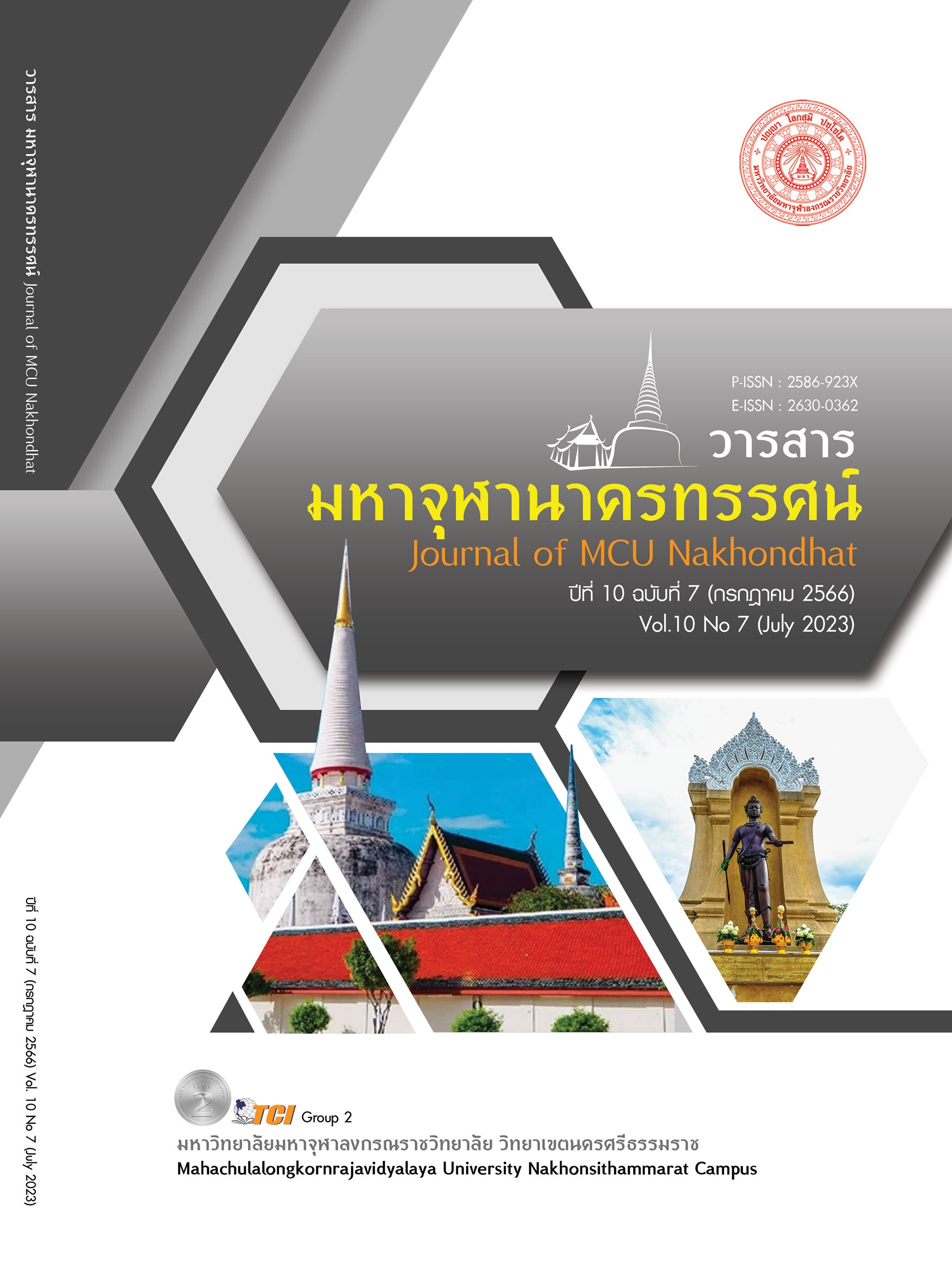USING AUTOBIOGRAPHICAL FILMS TO ENHANCE ENGLISH LISTENING SKILLS
Main Article Content
Abstract
English listening skills are one of the most important skills for language learning in the 21st century. Listening skills are about building good relationships between people in different societies and cultures to get information and cooperate with each other. However, students struggle to hear unfamiliar vocabulary, listen to long and fast contexts, don’t understand expressions and slang in the contexts they hear. The purpose of this article is to examine the effects of listening to autobiographical English-language films. The sample size was 30 freshman-year students in English program which derived from the purposive sampling. Pre-/Posttest, and quizzes were used to analyze the data by using Repeated Measures ANOVA The study found that students had the highest perception of autobiographies of important people through listening to movies, and there was a statistically significant difference in post-study test scores of 3.10 (F (3.64, 101.88) = 26.06, p < .001, η2 = .48). When comparing the results, it was found that students had an average pre-test score of 4.57 and a post-test average score of 9.03, which was a statistically significant difference (F(3.39, 98.30) = 25.30, p < .001, η2 = .47). Students had significant recognition of all 3 autobiographical terms. Students found it difficult to interpret unfamiliar sentences from a non-native speaker’s accent; hence, there is no difference between pre-/posttest scores in listening sentences section. The perception of famous autobiographies was high due to the enrichment of previous knowledge and the passion of important people to fulfill new knowledge.
Article Details

This work is licensed under a Creative Commons Attribution-NonCommercial-NoDerivatives 4.0 International License.
References
เกริก กี่สวัสดิ์คอน และคณะ. (2565). การใช้กลวิธีในการฟังและปัญหาที่เกิดจากการทำความเข้าใจการบรรยายเชิงวิชาการของนักศึกษาไทยที่ใช้ภาษาอังกฤษเป็นภาษาต่างประเทศ. วารสารมนุษยศาสตร์และสังคมศาสตร์ มหาวิทยาลัยนครพนม, 12(3), 15-28.
ชยกร สุตะโคตร และวิจิตรา วงศ์อนุสิทธิ์. (2560). การพัฒนาทักษะการฟัง-พูดภาษาอังกฤษของนักศึกษาสาขาวิชาภาษาอังกฤษโดยใช้คลิปภาพยนตร์ต่างประเทศ. วารสารวิชาการหลักสูตรและการสอน มหาวิทยาลัยราชภัฏสกลนคร, 9(26), 103-109.
ปรียานุช ทองเกลี้ยง. (2562). ผลการใช้แบบฝึกประกอบภาพยนตร์ที่มีต่อทักษะการฟังภาษาอังกฤษของนักเรียนระดับมัธยมศึกษาปีที่ 3. นครปฐม: มหาวิทยาลัยศิลปากร.
ระบบบริการการศึกษา สำนักงานส่งเสริมวิชาการและงานทะเบียน มหาวิทยาลัยราชภัฏจันทรเกษม. (2566).รายชื่อนักศึกษาและแผนการเรียน. เรียกใช้เมื่อ 17 กุมภาพันธ์ 2566 จาก https://reg.chandra.ac.th/registrar/studentset.asp?facultyid=3&acadyear=2565&semester=1
วนิดา วาดีเจริญ และคณะ. (2560). ระเบียบวิธีวิจัยจากแนวคิด ทฤษฎี สู่ภาคปฏิบัติ. กรุงเทพมหานคร: บริษัท ซีเอ็ดยูเคชั่น จำกัด (มหาชน).
โสภิต สุวรรณเวลา. (2563). ผลการพัฒนาทักษะการฟังและการอ่านภาษาอังกฤษโดยการชมภาพยนตร์และการฟังเพลงของนักศึกษาพยาบาล ชั้นปีที่ 3 วิทยาลัยพยาบาลบรมราชชนนี ตรัง. วารสารมนุษยศาสตร์และสังคมศาสตร์, 8, 116-127.
Cubalit, A. N. (2016). Listening Comprehension Problems of Thai English Learners: Proceedings of theThird International Conference on Language, Literature & Society. Sri Lanka: InternationalCenter for Research and Development.
Harmer, J. (2015). The practice of English language teaching. (5th ed.). Slovakia: Pearson.
Ismaili, M. (2013). The effectiveness of using movies in the EFL classroom – A study conducted at South East European University. Academic Journal of Interdisciplinary Studies, 2(4), 121-132.
Richard, J. . (2015). Key issues in language teaching. Dubai: Cambridge University Press.
Sreena, S., & Ilankumaran, M. (2018). Developing productive skills through receptive skills – A cognitive approach. International Journal of Engineering & Technology, 7(4), 669-673.
Worrawattananukul, A. . (2016). APIU learners’ attitudes toward using English movies for developing listening comprehension skills. ใน research paper Master of Arts (English for careers). Thammasat University.


